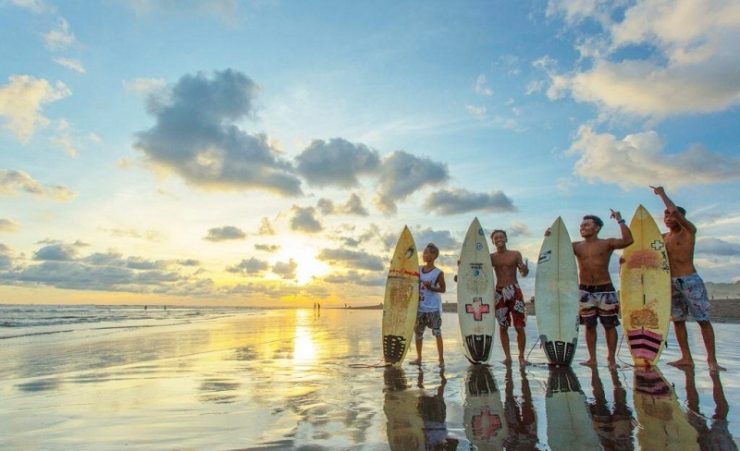THE Ministry of Tourism and Creative Economy, emphasizes the strict and disciplined application of the CHSE-based health protocol and balanced with testing, tracing and treatment (3T) is the main key in efforts to revive the tourism sector and the creative economy. Especially in Bali which is the locomotive of national tourism.
According to the Minister of Tourism and Creative Economy, Sandiaga Salahuddin Uno, said that the projected growth of Bali tourism in 2021 will still depend heavily on handling COVID-19. The implementation of strict health protocols will reduce the spread of COVID-19, so that various recovery programs prepared by the government can run.
“Bali’s economic growth in the fourth quarter of 2020 is minus 12%, and the cumulative rate in 2020 is minus 9.31%. And the projection of this tourism recovery will depend very much on the COVID-19 case. If we can be single or double digits (number of cases of transmission of cases) COVID-19) will certainly be extraordinary, so it will build confidence to travel from tourists,” said Sandiaga Uno.
He explained, the implementation of strict health protocols is the main thing that must be carried out in an effort to reduce the spread of COVID-19. He also supported the decisive action taken by the Bali Provincial Government and related parties against tourists, both domestic and foreign, who still did not heed health protocols.
“Since the implementation of PPKM Mikro on 9-17 February 2021 in Bali, 2,658 people have tested positive for COVID-19. Don’t worry about applying strict and disciplined health protocols. Tourists who come to Bali actually welcome the implementation of health protocols to ensure their safety while traveling,” Sandiaga noted.
Sandiaga also conveyed various programs that the Tourism Ministry would run in the recovery of tourism and the creative economy. Starting from the proposed soft loan program with a total of IDR9.4 trillion, the increase and expansion of tourism grant funds, labor-intensive programs for tourist villages, as well as priority vaccines for the tourism community and creative economy in Bali and the Bali Tourism Free COVID Corridor.
“As many as 80% of Balinese people depend on tourism and the creative economy. Hopefully with this recovery strategy we can see economic growth in Bali in the third and fourth quarters,” Sandiaga added.
Meanwhile, the Coordinating Minister for Maritime Affairs and Investment, Luhut Binsar Panjaitan, revealed that supervision is important in implementing health protocols. He then asked the Bali Provincial Government along with related parties such as the National Police, Indonesian National Armed Forces (TNI), and immigration to strictly implement health protocols for tourists including foreign tourists.
“To be firm in taking action against tourists who violate government regulations, including foreign tourists. It must be firm, we are a sovereign country but in good ways. The key to all of this is discipline,” Luhut pointed out.
He also asked the Bali Provincial Government and the Ministry of Health to focus on vaccination for workers in the tourism sector and the creative economy. As well as proposing labor-intensive programs on the improvement of villages and public facilities in tourist attractions that prioritize the CHSE.
The provincial government of Bali is also expected to make a transition from mass tourism to quality tourism. As well as increasing the contribution of the creative economy sector and the digital economy as part of alternative livelihood efforts and diversification of the economic sector.
“The G-20 Summit can become a momentum for the recovery of the tourism sector in Bali by increasing the creative and digital economy sectors. The momentum of holding the G20 Summit in Indonesia will also be a showcasing of quality tourism destinations,” Luhut concluded. [traveltext.id]
















